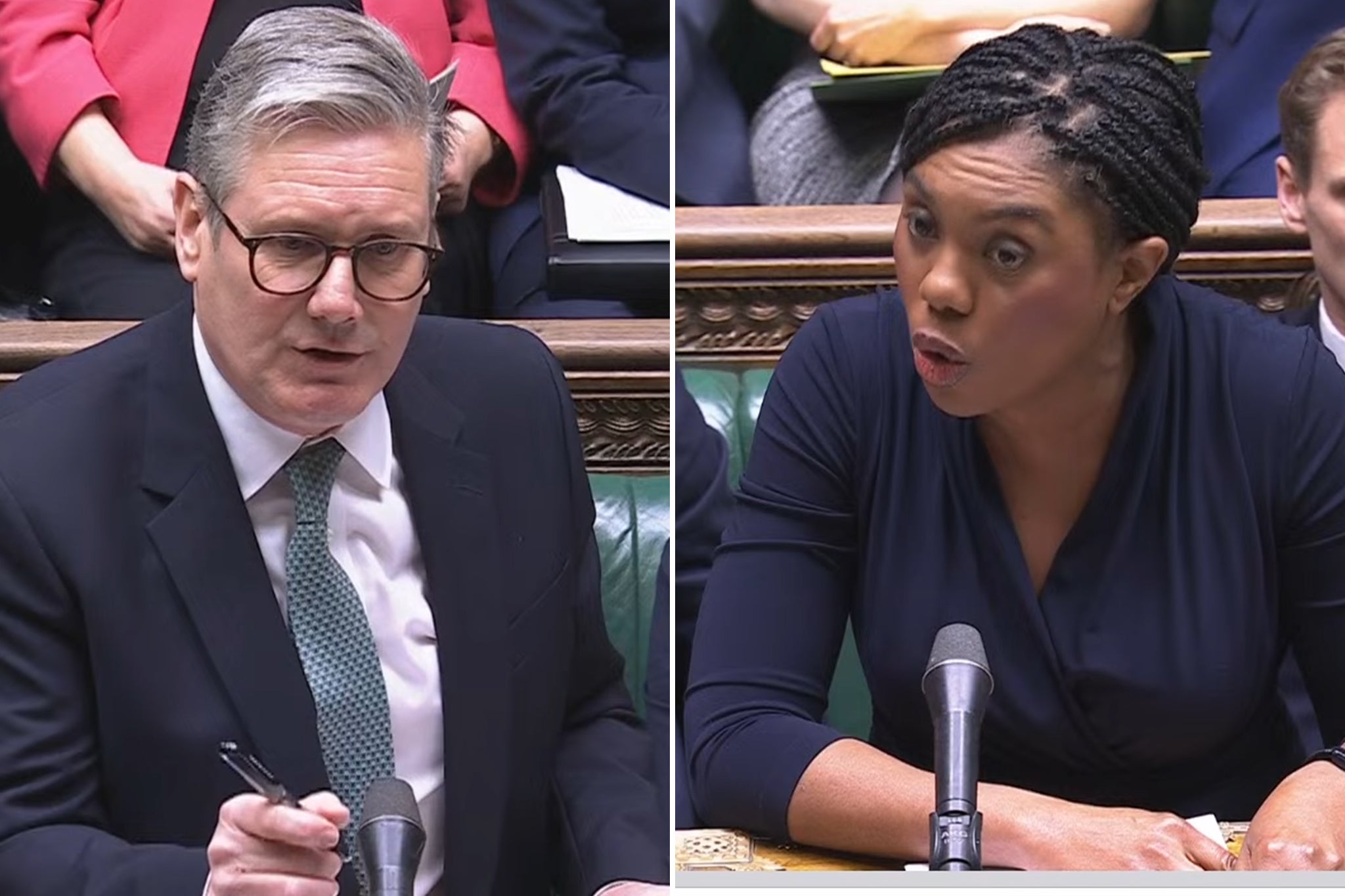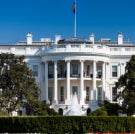Sir Keir Starmer will face Kemi Badenoch at PMQs after a surprise inflation fall gave a boost to under-fire chancellor Rachel Reeves.
Inflation fell slightly to 2.5 per cent, new data showed, prompting the markets to bet more heavily on the Bank of England cutting interest rates in February.
This gave some relief to the turbulence in the UK government bond markets on Wednesday morning, in positive news for the chancellor.
Speaking to the BBC, former Bank of England policymaker Michael Saunders said of the new figures: “I think you can hear a sigh of relief coming out from Downing Street, the Bank of England and across financial markets as a whole.”
Hitting out at “unfair” criticism of Ms Reeves after the cost of government borrowing rose to its highest level since 1998, Treasury minister Darren Jones appeared to rule out an emergency budget in March, telling Times Radio on Wednesday that there will only be “one major fiscal event a year”.
Bridget Phillipson dodges question on impact of private school tax raid
Bridget Phillipson failed to spell out the full impact of the government’s private school VAT raid, dodging the question when asked about the possible implications for special education schools.
While she said the government has “looked at all of the potential impacts”, her answer failed to provide any real detail on the expected consequences.
It comes as parents and schools complain about the implications of the tax raid, which came into force on New Year’s Day and is expected to raise £1.5bn for the Treasury.
Our political correspondent Millie Cooke reports:
Starmer to face Badenoch at PMQs after Treasury minister resigns
Sir Keir Starmer is set to face Kemi Badenoch at PMQs.
The Tory leader will have plenty of ammunition following the resignation of anti-corruption minister Tulip Siddiq on Tuesday evening, recent economic turmoil, and controversy over the Chagos Islands deal.

Treasury minister quizzed on ‘Hunger Games’-style spending review
Chief secretary to the Treasury Darren Jones has been quizzed on Good Morning Britain over plans for “Hunger Games”-style discussions over ministerial budgets, as UK bond market pressures raise the prospect of further spending cuts.
Warning of looming cuts to public spending, host and former Labour Treasury minister Ed Balls said: “There are reports in the newspapers that you are planning a novel approach. I’ve been involved in lots of spending reviews – I’ve never heard of this before.
“You’re going to get groups of cabinet ministers in a room and if they don’t offer up big enough cuts, you’re going to ask them to tell other cabinet ministers what cuts they’re going to have to make. It sounds like the Hunger Games. Is this a joke, or is it actually what you’re going to do?”
Rejecting this and joking that Balls could host such a show, Mr Jones said: “For the first time in 17 years, we’re doing what’s called a zero-based review, so every department is having to look at every pound they spend, and make sure it’s aligned with the priorities of this government.
“So those group discussions we’re having – we’re calling them ‘clusters’ in the Treasury – is where secretaries of state from different departments have to offer up parts of what their department does in order to deliver the outcomes that we expect.
“That’s about getting them to work together and make sure they’re prioritising the over a trillion pounds that we spend every year as a country on the people’s priorities and not just things that have been carrying on for years.”
Watch: Tory confronted over ‘pot, kettle, black’ criticism of Tulip Siddiq
Inflation data merely a ‘temporary reprieve’, analyst says
Rob Wood, chief UK economist for Pantheon Macroeconomics, said: “Inflation fell in December because of a huge temporary drop in airfares inflation, driven by an early CPI collection date, and an erratic fall in accommodation services.
“Both will reverse in January, so the dovish news today is a temporary reprieve.”
House prices rises accelerated in November, new data shows
Annual house price growth accelerated to reach 3.3 per cent in November, up 0.3 per cent upon the previous month, according to new Office for National Statistics data – taking the average UK property value in November to £290,000.
Average house prices increased in England to £306,000 and £219,000 in Wales, with both countries seeing 3 per cent annual growth. In Scotland, prices rose 4.7 per cent to hit an average of £195,000, and in Northern Ireland rose to £191,000 in the third quarter of 2024, up 6.2 per cent upon the previous year.
Inflation will remain above Bank of England’s 2 per cent target this year, predicts CBI
Inflation will stay above the Bank of England’s 2 per cent target this year, partly as a result of the chancellor’s Budget pushing up prices, the Conferation of British Industry has suggested.
Martin Sartorius, principal economist at the CBI, said: “Inflation remained moderately above the Bank of England’s 2 per cent target in December, reflecting the impact of ongoing price pressures such as strong wage growth.
“Looking ahead, we expect inflation will stay elevated this year, partly due to Autumn Budget measures contributing to higher prices.
“Persistent, above-target inflation supports our expectation that the Monetary Policy Committee will loosen policy at a gradual, quarterly pace throughout 2025. The next rate cut is still likely to come in February, which will bring some respite for businesses and households as they continue to face high borrowing costs.”
Germany’s economy shrinks for second consecutive year
Germany’s economy shrank for the second consecutive year in 2024, highlighting the depth of the downturn gripping Europe’s biggest economy and, to some degree, the struggle facing the UK government in securing tangible growth.
Germany’s economy shrank by 0.2 per cent over the full year and by 0.1 per cent in the final quarter, the Federal Statistics Office said on Wednesday, suggesting little sign of an imminent reprieve.
“Cyclical and structural burdens stood in the way of better economic development in 2024,” said Ruth Brand, president of the statistics office, pointing to increasing competition from abroad, high energy costs, elevated interest rates and uncertain economic prospects.
Germany’s economy also shrank by 0.3 per cent in 2023. The last time it suffered two consecutive years of contraction was in the early 2000s.
Union chief urges Bank of England to heed ‘dangers of keeping interest rates high for too long’
The head of the Trades Union Congress has urged the Bank of England to cut interest rates following the latest data showing a surprise fall in inflation.
“Inflation has shown further falls and is not only down on the month, it also remains below where the Bank of England thought it would be a year ago,” said TUC chief Paul Nowak.
“The government has made the right call on big economic decisions – boosting public investment and prioritising working people’s incomes – but the Bank of England must keep playing its part too.
“The [European Central Bank]’s chief economist recently warned of the dangers of keeping interest rates high for too long. It’s time for the Bank of England to act with another interest rate cut at the start of February.
“This matters for hard-pressed working people and businesses – more money in people’s pockets means more money spent on our ailing high streets and lower interest rates would make it easier for firms to invest.
“After over a decade of economic failure from previous Conservative governments, restoring decent growth rates will be no small task – but it must remain a national priority. We cannot continue with the same broken status quo.”
Comment | Starmer hopes to be saved by two bells – high flying twins Torsten and Olaf
With the economy on the ropes and the clock running down to find an answer you cannot blame Keir Starmer for hoping his battered administration might be saved by the bell, writes Simon Walters.
It appears he is counting on being saved not by one bell but two Bells. In the space of 24 hours twin brothers Torsten and Olaf Bell, aged 42, have become two of the most influential members of Starmer’s revamped team.
Torsten Bell, who entered the Commons in July, has been made pensions minister in the wake of Tulip Siddiq’s resignation. It comes just 24 hours after his non identical twin, career civil servant Olaf was made head of the Downing Street policy unit.
Despite their relative young age both are economic heavyweights with vast experience of tackling complex financial issues.
As pensions minister Torsten Bell will have a major input into key economic decisions. He was an adviser to Gordon Brown and later ran the respected Resolution Foundation think-tank.
Like his brother, Olaf Henricson-Bell is no stranger to trying make the numbers add up at the Treasury. As a civil servant he has worked closely with three Tory Chancellors, Philip Hammond, Sir Sajid Javid and Rishi Sunak.
Source: independent.co.uk



